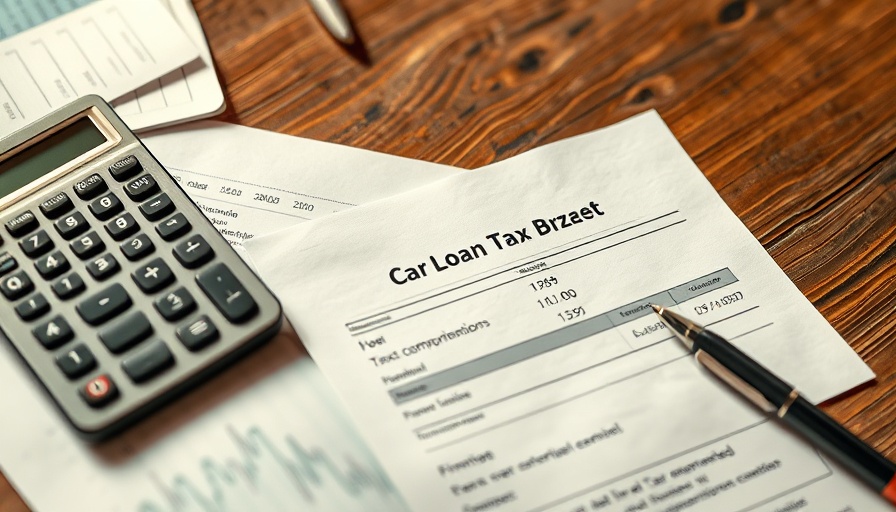
Understanding the New Tax Break for Car Loans
The tax break introduced by the Trump administration for car loans is creating quite the stir. If it sounds complicated, that's because it truly is! Many people are scratching their heads, trying to figure out how this might affect their wallets. Is it a good deal or just another confusing tax benefit?
How It Works: The Basics
At its core, this new tax break allows borrowers to deduct a portion of the interest paid on their car loans. It's designed to help those who may be struggling with auto payments, especially in our current economy. But understanding the logistics can be tricky. For many, it might feel like solving a puzzle without all the pieces.
The Upsides: Who Benefits Most?
The primary benefits go to those buying cars who take out loans rather than paying cash. It’s particularly useful for young adults and families looking to buy their first vehicle but could also apply to anyone making monthly payments on a car. The deduction would lower taxable income, potentially leading to lower tax bills. This financial perk is intended to stimulate car sales and provide some relief for families.
Understanding the Risks: Potential Pitfalls
However, as with any tax break, there are risks involved. The complexities of filing for this deduction can lead to misunderstandings. If taxpayers are not careful, they could inadvertently miss out on benefits or, worse, misreport their income, leading to complications with the IRS. Many financial experts warn that getting too wrapped up in such tax breaks can distract buyers from focusing simply on affordability versus long-term financial planning.
Making Informed Decisions: Weighing Your Options
Before jumping into a new car purchase, it’s wise to consider whether the tax break outweighs the financial burden of a loan. Paying cash might seem less appealing without the allure of a tax break, but it also means avoiding potential debt. Assessing your financial situation is crucial. "Have I really thought about how this loan affects my future finances?" is a necessary question to ask yourself.
How This Ties Into Larger Financial Trends
This new tax break reflects a broader trend of government intervention in personal finance during uncertain economic times. Many Americans are feeling the pinch from inflation and rising interest rates, and the government’s move aims to alleviate some of that effect. Understanding how such changes can impact your financial planning is vital in making responsible decisions that protect your financial wellbeing.
Final Thoughts: Stay Informed and Prepared
As this tax break gains traction, it’s more important than ever to stay informed. Tax laws can change, and what’s available today may not be there tomorrow. Engaging with a financial advisor can help you navigate these options to ensure you're making informed choices that align with your financial goals. Don't forget: being proactive about your money management now can save headaches in the future!
To recap, while the car loan tax break may seem like an attractive option, it’s essential to approach it with caution. Evaluate your own circumstances and consult with financial professionals to make the best decision for you. Stay engaged with changes in financial regulations and be ready to adapt accordingly.
 Add Row
Add Row  Add
Add 




Write A Comment